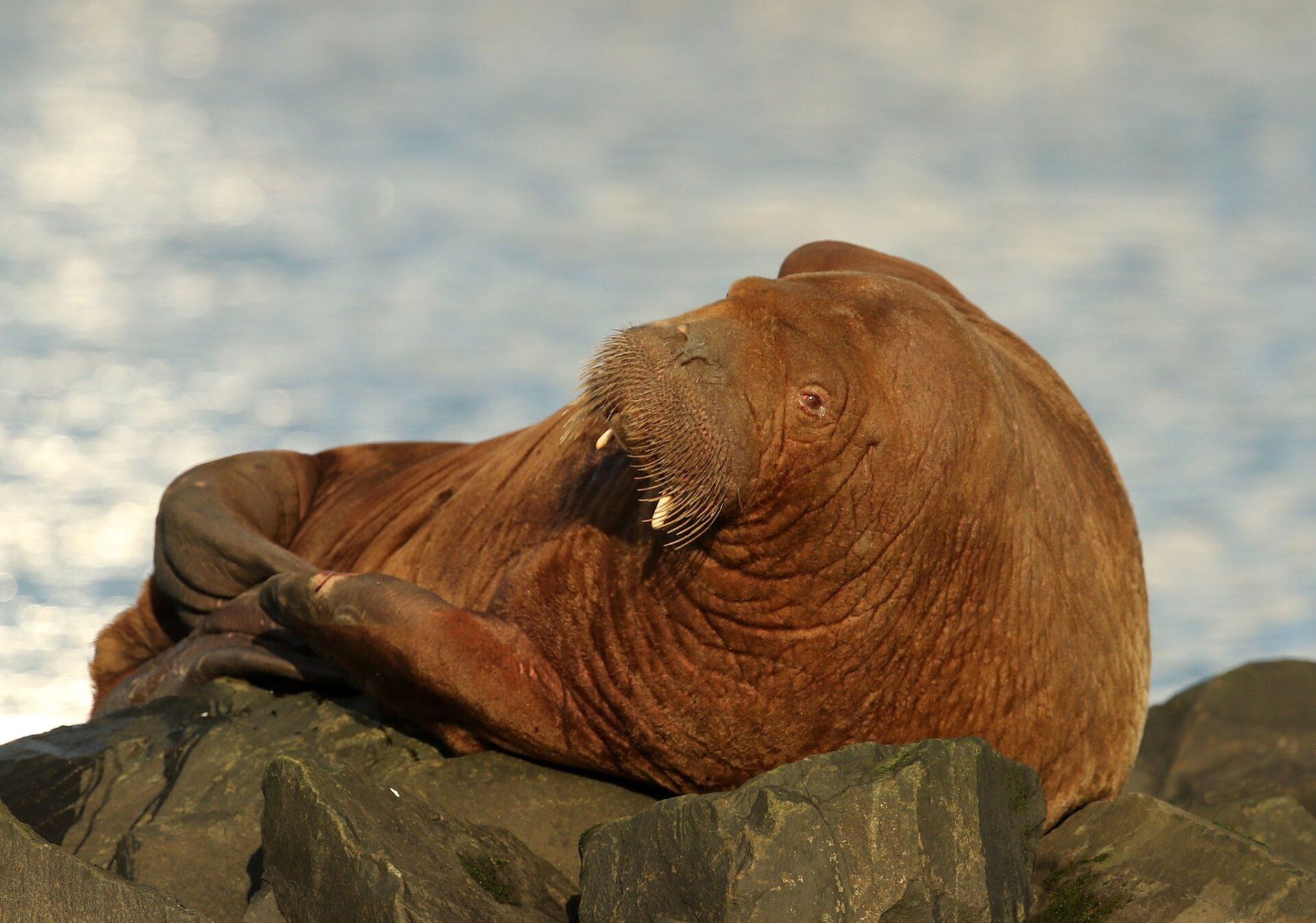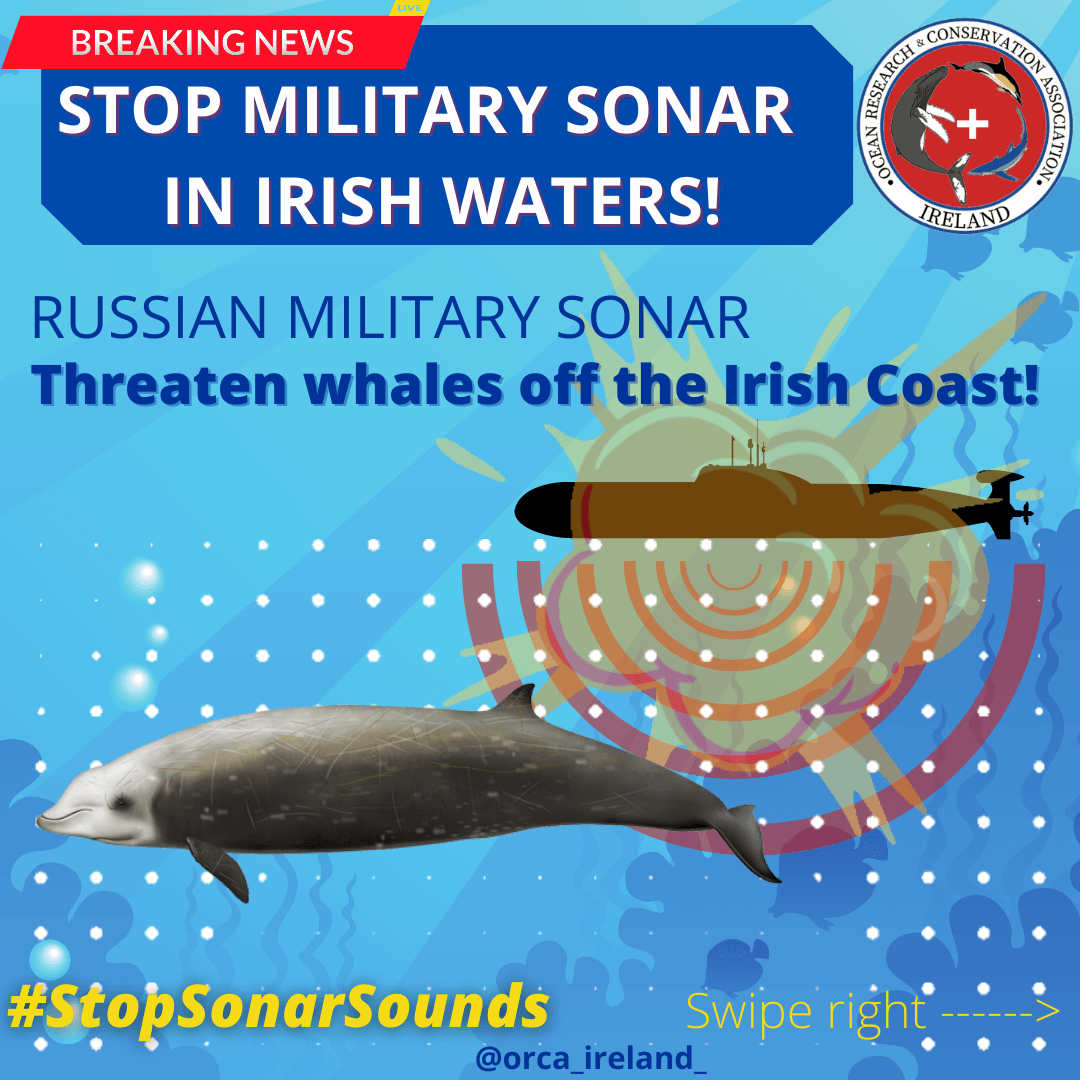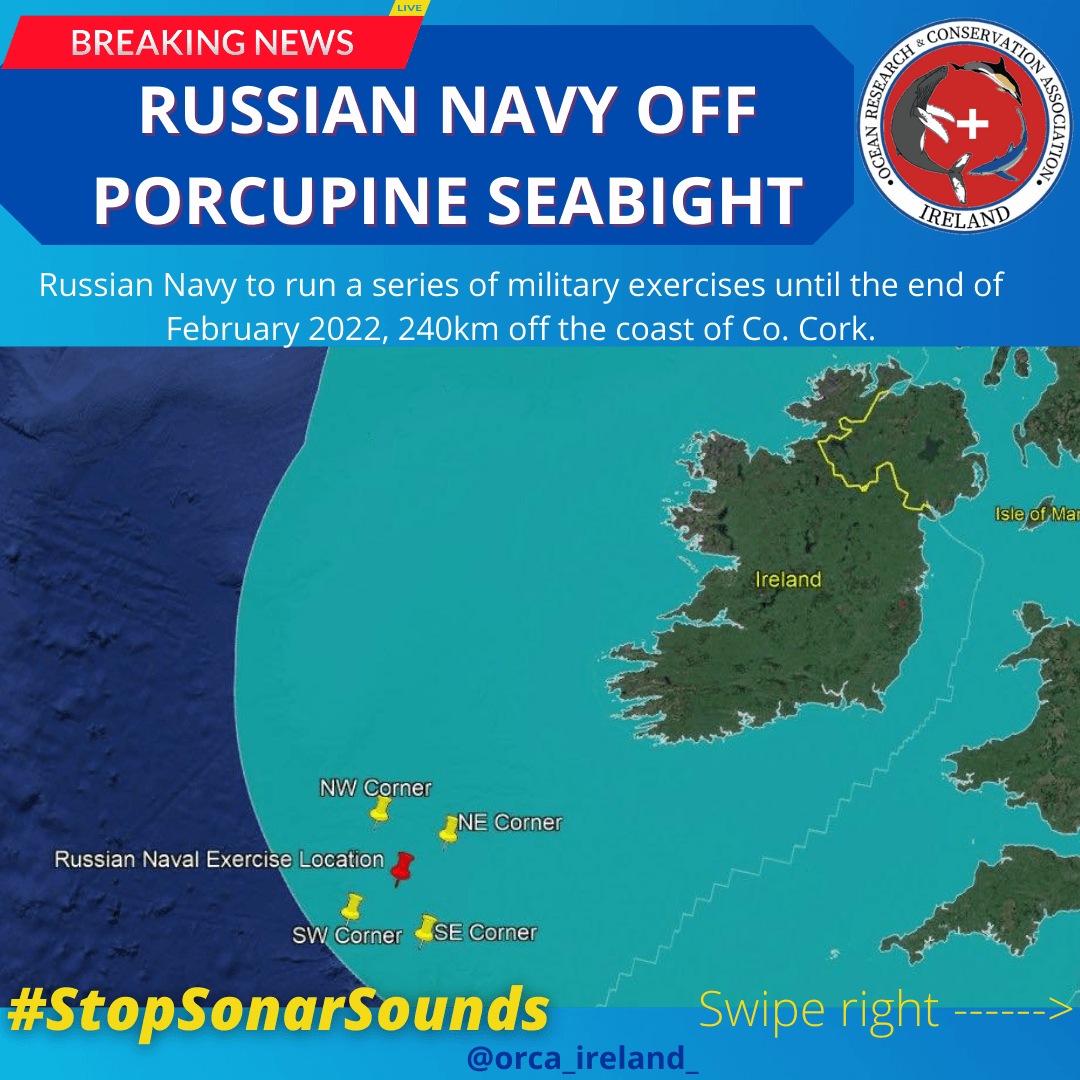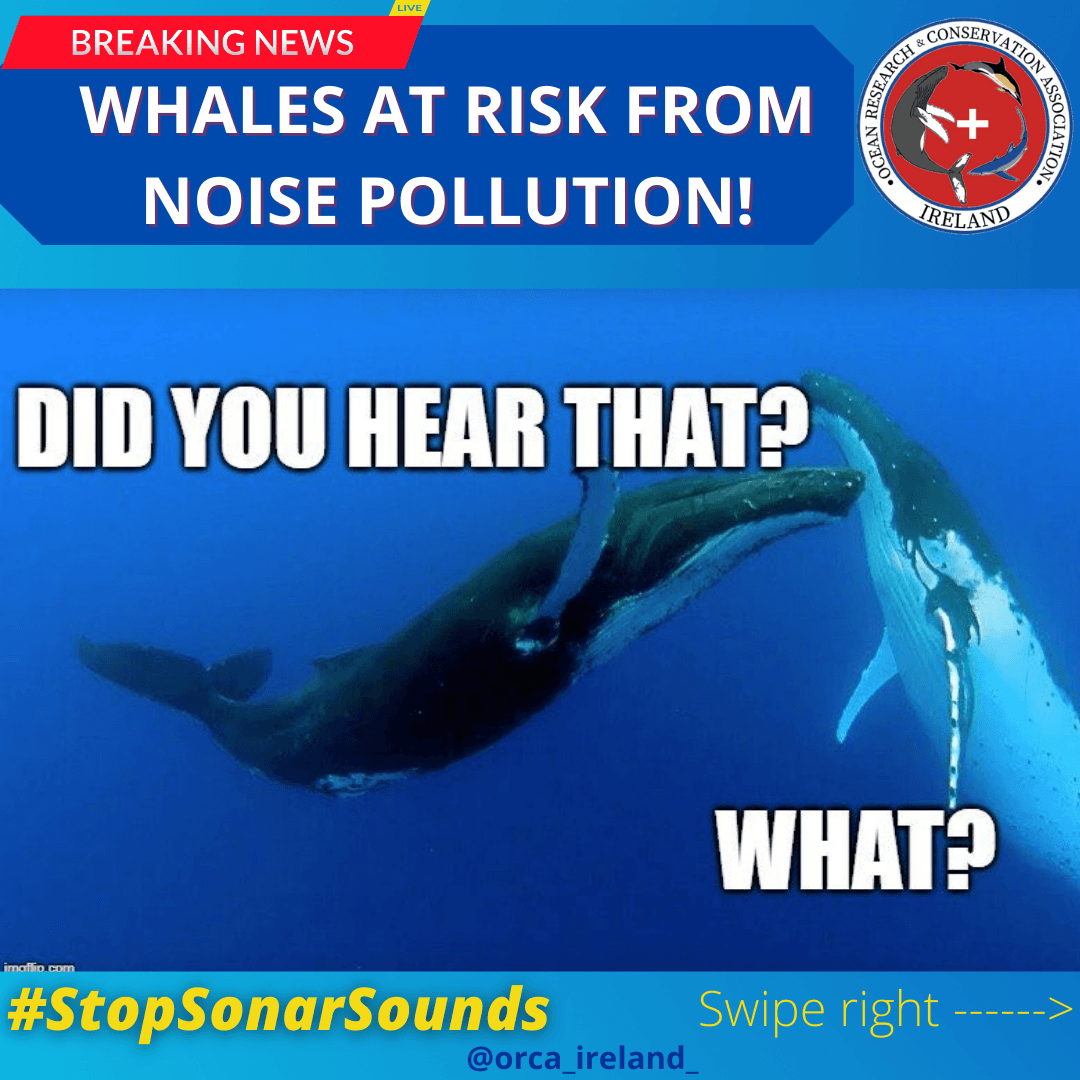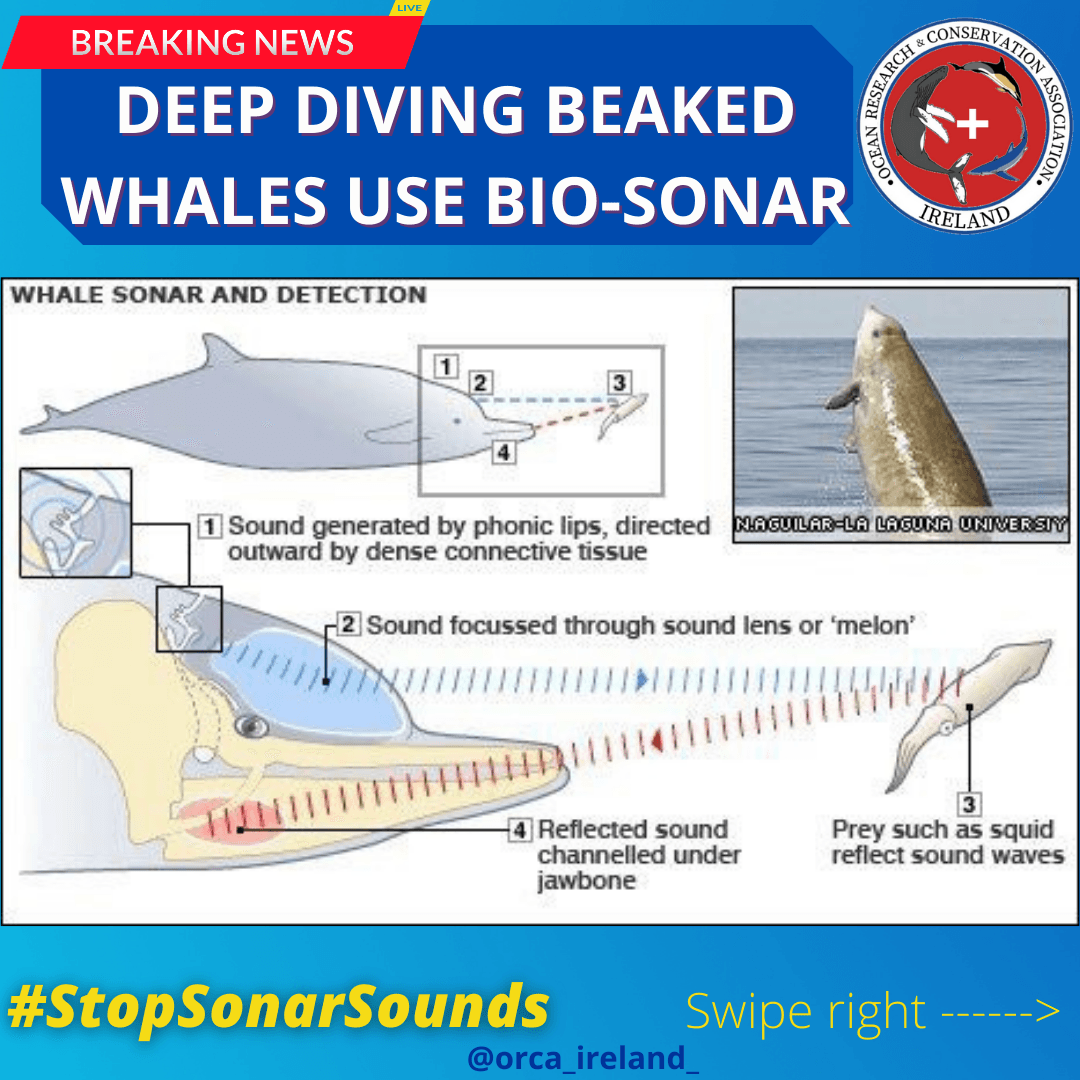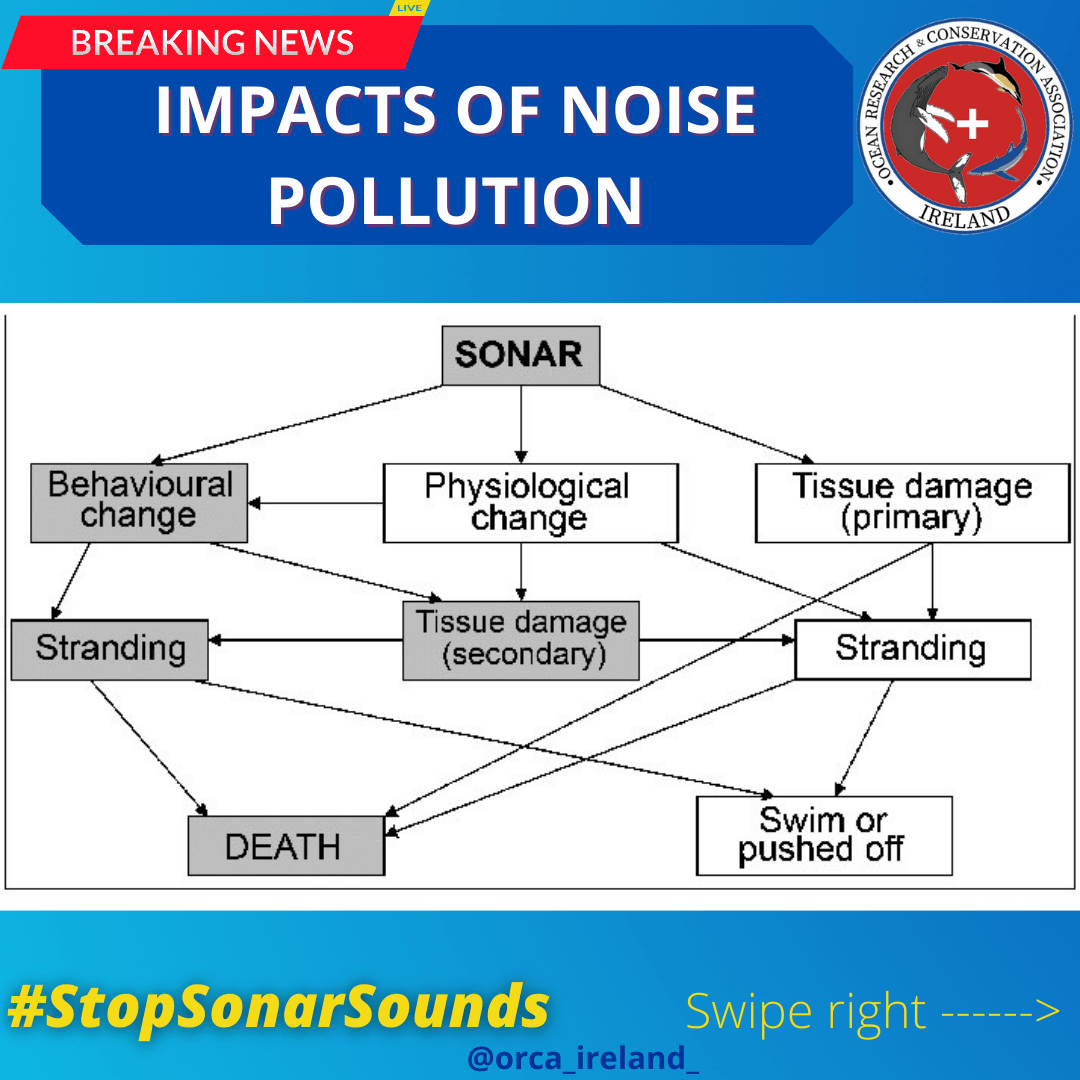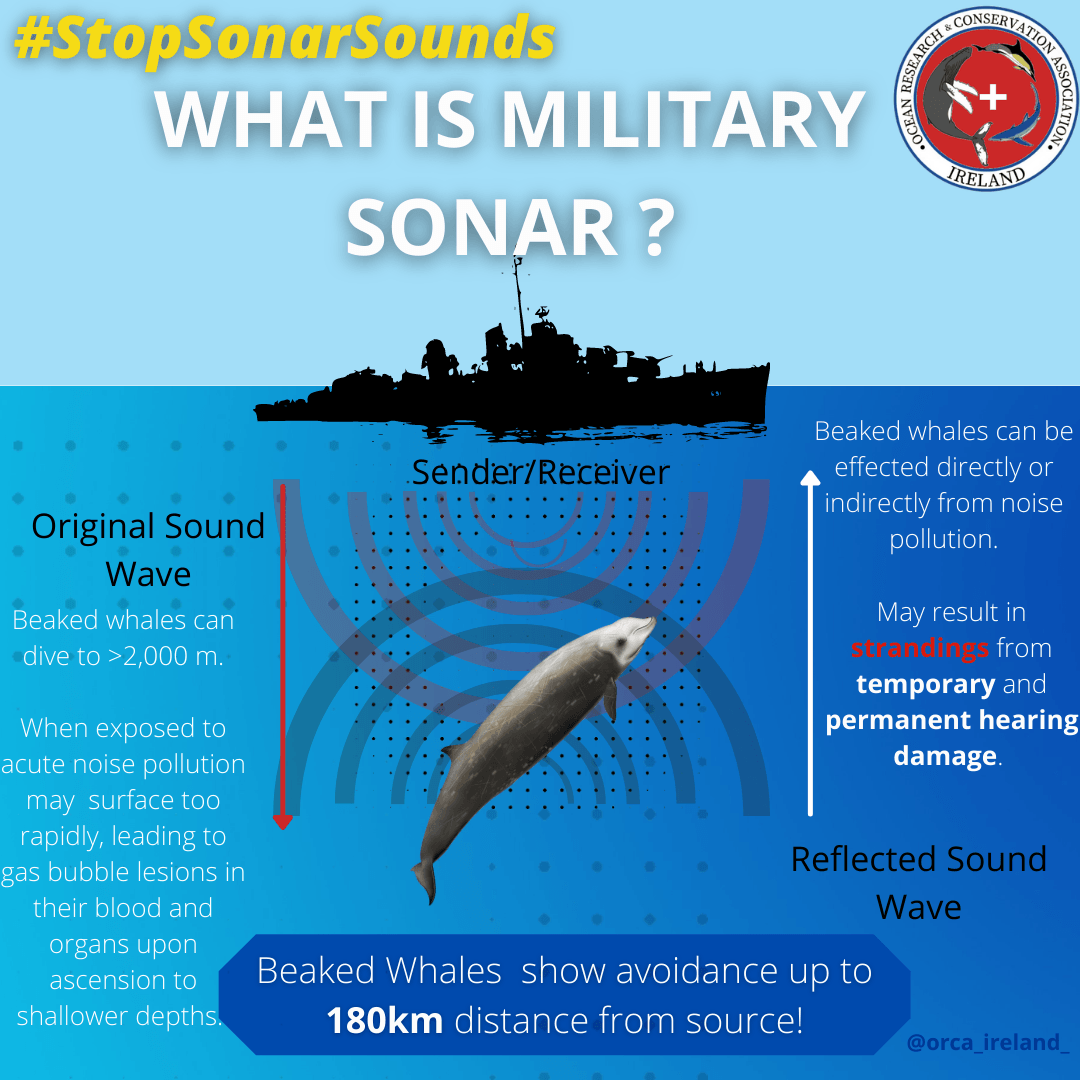BREAKING: Russian Military Tests Threaten Whales in Irish waters
RUSSIAN MILITARY TESTS THREATEN WHALES IN IRISH WATERS
ORCA SciComm Team | 25th of January 2022
Concerns in relation to the potential threat to marine wildlife from noise pollution have been raised among scientists, NGO's and government agencies, as Russia deploys 140 warships and about 10,000 sailors around the world to take part in naval exercises expected to last several weeks. A Notice by the Irish Aviation Authority (IAA) on the 21st of January announced the presence of Russian Navy submarines in Irish waters located approx. 240km off the south coast of Ireland. The reason for their presence is to conduct a series of underwater and airborne artillery tests which threaten some of the most endangered whale species on the planet.
Russia has announced its navy will stage an expansive set of hypersonic and missile exercises from the Pacific to the Atlantic involving all of its fleets as a show of strength amid a rise in military tensions with the West. The missile tests will take place in the first week of February off the coast of Cork, but are also planned in the Mediterranean, the North Sea, the Sea of Okhotsk, the Atlantic and the Pacific Ocean from the end of January to the end of February.
The Department of Transport has advised that “management of Irish Air Traffic Control Airspace is a matter for the Irish Aviation Authority (IAA)”, who have stated that “all civilian aircraft will be routed away from the area” and has confirmed that a warning, known as a
Notice to Air
Missions
(NOTAM), will be issued to commercial aviation.
Ireland’s minister for Foreign Affairs, Simon Coveny has raised the issue with the Russian ambassador to Ireland Yuri Filatov and is recommending that citizens avoid any unnecessary travel to the country at this time.
The Ocean Research & Conservation Association of Ireland (ORCA Ireland), has also created an Online Petition, which began in 2018, to send to relevant government agencies, seeking to BAN all Military Sonar Activities in Irish waters, and we seek to gain knowledge the types of underwater testing being conducted in Irish waters, so all necessary mitigation measures be put in place to ensure vulnerable deep diving cetacean species are protected.
The location of the Russian naval exercises are taking place approximately 240km off the south west coast of Ireland within the EEZ (Exclusive Economic Zone) 200 nm limit. According to the UN Convention on the Law of the Sea (UNCLOS), under international law, states are entitled to carry out naval exercises in another states EEZ.
A country has no legal sovereignty over its EEZ, but it does have exclusive rights to exploit the resources contained within it. Under the
United Nations Convention on the Law of the Sea
(UNCLOS), cetaceans may be considered a “marine living resource” and it explicitly notes migratory marine mammal conservation, stating that member states must “cooperate to conserve, manage, and study such marine mammals (and other migratory species) in the EEZ and the high seas”.
Furthermore, member states should “cooperate with a view to the conservation of marine mammals and in the case of cetaceans shall in particular work for their conservation, management and study”.
The potential risks sonar poses to cetaceans received international attention with a mass stranding of deep diving offshore Cuvier's beaked whales (Ziphius cavirostris), Northen bottlenose whales (Hyperoodon ampullatus) and Sperm whales (Physeter macrocephalus) across the north and west coasts of Ireland, in October 2018. Following this unusual mortality event (UME), ORCA Ireland expressed concerns about the threats posed to cetacean populations by active sonar and highlighted cetacean mortalities and sonar-related stranding events in other parts of the world.
There is extensive scientific literature detailing direct and indirect links to chronic exposure to military sonar, which may elicit avoidance behaviour, to more severe impacts such as mortality. Deep diving cetacean species are more vulnerable to the impacts of active military sonar, as they spend the majority of their time at great depths and depend heavily on their own bio-sonar for foraging, communication and navigation. Beaked whales can dive to depths of greater than 2000 meters, but when exposed to acute noise pollution, such as the pulses from active sonar testing, they may ascend too rapidly, causing gas bubble lesions to form in their blood vessels and get "decompression sickness", also known as "divers disease" or the "bends".
In more severe cases, permenant and temporary hearing damage may lead to errors in navigation and result in mass strandings, particularly of highly social species such as long-finned pilot whale (Globicephala melas).
Please join us in our efforts to BAN MILITARY SONAR IN IRISH WATERS!!!
Sign the petition below and we will add your signature to the list of ocean warriors that are trying to protect Irish oceans from the harmful impacts of noise pollution.
SHARE THIS ARTICLE






